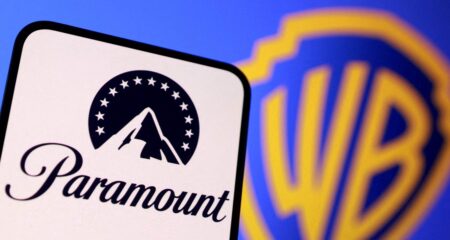
The humble video store isn’t dead, provided it adapts to the times by taking advantage of modern technology, says Barry Hilton. The South African comedian has an idea he thinks can save the DVD rental industry. And he’s not joking.
Hilton, known for his comedic sketches that poke fun at South African society, says video stores have failed to deal with shifting consumer trends. And those that don’t adapt won’t survive, he says.
“I’m a big fan of DVDs. It’s a very good and cost-effective way to entertain your family and not everyone has DStv and streaming and this and that,” Hilton tells TechCentral.
But as consumers go online, as property rentals in prime shopping malls shoot up and the economy stagnates, big DVD stores are struggling to survive. Across the country, video shops have been forced to close their doors. This doesn’t have to happen, says Hilton.
Video stores, instead of having huge, airy spaces with DVD covers spread out on display along their racks and against their walls, have to use technology to compress the space they use, thereby reducing their rentals and maintaining profitability.
“People have this impression that DVDs are finished because wherever you go, you see big franchise stores closing down. But the reason these big franchise DVD stores are collapsing at such a rate is they can’t afford to pay their rent, and the franchisees have to pay the franchisor, who is crushing them before they even start.”
Far from killing the industry, Hilton believes technology can help save it. The idea is to use significantly less retail space, and to allow customers to browse for and book their DVDs either on in-store screens, or online using a PC or smartphone. Discs can then be collected from an in-store clerk, or even through a drive-thru facility.
“I can operate a 5 000-disc store from 10sq m,” Hilton says. “I could run a 10 000-disc DVD store out of a space the size of a London Pie shop.”
He claims his model can save DVD stores 80% of what they pay on property rental. “I remove the need for stupid amounts of floor space. I can take the DVD stores back to the small shops,” he says, adding that retail chains could have in-store DVD kiosks, allowing people to pick up a movie while they’re buying their bread and milk.
“A DVD store doesn’t have to be in a DVD store anymore. It can be in any pizza or takeaway store, a convenience store, even the forecourts of garages,” he says.
“A certain shop opened next to the Spar next to me, a big franchise,” Hilton says of one of the stores he operated using his software. “They scoffed at me. They said, ‘Haven’t you got that little shop around the corner?’ I said, ‘How many discs do you hold here?’ He said, ‘Twelve hundred.’ He asked how many could I stock. I said I was down to about 15 000. They have subsequently closed down. They could not beat me.”
Hilton had implemented the technology in his own stores, which operated under the name Cousins DVD, but has since sold them to focus on Vision Adventures, which develops the software that powers the system. So far, 13 video stores have rolled it out.
“The perception of the DVD industry is that it’s collapsing. It’s not, it’s changing,” he says. “DVD stores are closing, but for the reasons people think. They are closing because the people who control the industry are refusing to change their business model.”
Netflix, DStv BoxOffice and other online streaming solutions will not reach most South Africans for a long time, says Hilton, meaning DVD stores will remain popular. “Even with Netflix in America, they still have DVD stores. The majority of the population hasn’t got Netflix.” — (c) 2014 NewsCentral Media




